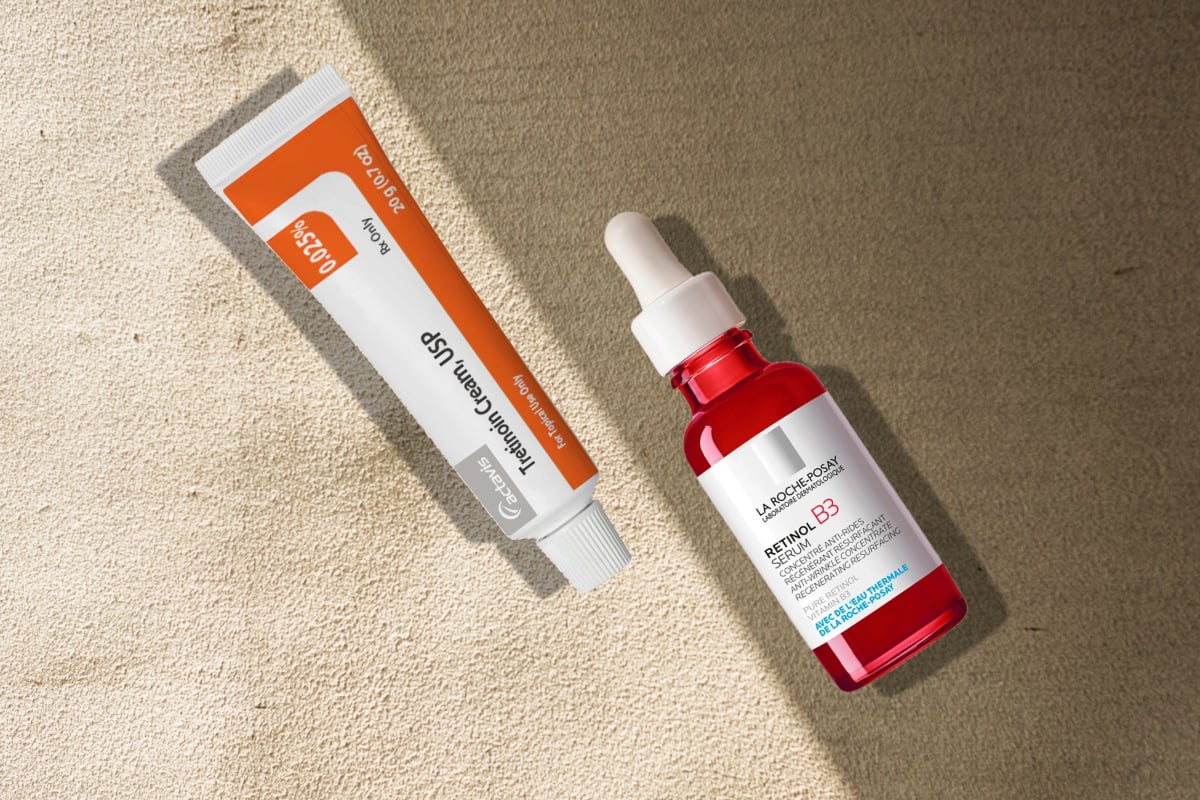- Zinc gluconate is the zinc salt of gluconic acid
- Both topical and oral use can improve your skin
- It’s an antioxidant
- Treats acne by regulating sebum, soothing inflammations, and speeding up healing
If you’ve been battling acne for a long time and can’t seem to shake off those annoying pimples, zinc gluconate should be on your radar. This zinc-derived substance is famous for its anti-inflammatory power that works wonders for reducing acne, but there’s actually much more it can do for your skin. Read on to learn everything about zinc gluconate in skincare.
What is zinc gluconate?
Zinc gluconate is the zinc salt of gluconic acid (an organic compound derived as a by-product of glucose oxidation). The substance combines the anti-inflammatory and antibacterial activities of zinc with the cell regeneration properties of glucose to help improve acne and ease the skin. Not only that, but gluconic acid also aids in boosting the absorption and bioavailability of zinc, enhancing its skincare effects when applied topically or taken orally. Besides, zinc gluconate for skincare leverages the oil-controlling benefits of zinc to reduce sebum production, thereby preventing clogged pores and further breakouts.
Benefits of zinc gluconate for skin
Since a zinc deficiency often manifests as acne, eczema, or dry, cracked skin, supplementing your body with zinc gluconate through topical use or supplements can pay off a lot in the long run. And even if you don’t deal with deficiencies, your complexion still can benefit from using zinc gluconate. Below are the skincare benefits of zinc gluconate:
Improves acne: Zinc gluconate has anti-inflammatory properties that help reduce the redness and swelling of acne. Thanks to zinc’s antibacterial power, zinc gluconate can also inhibit acne-causing bacteria, preventing breakouts from happening in the first place. Multiple studies have found zinc gluconate effective for inflammatory acne, but it’s thought to have little effect on non-inflammatory conditions.[1][2][3]
Regulates sebum production: Acneic skin can often be a matter of pores getting clogged with sebum, and zinc gluconate can help with that too. Because zinc has the ability to minimize sebum production, it’s great at preventing congested pores and keeping pimples at bay.
Boost antioxidant defense: Zinc gluconate is a cofactor of the antioxidant enzyme superoxide dismutase, which is the body’s first line of defense against free radicals (cell-damaging molecules).[4]
Accelerates wound healing: Zinc gluconate is known to activate collagenase, an enzyme that accelerates wound healing by supporting collagen remodeling during skin repair. This may also help reduce acne scarring and maintain skin integrity while speeding up pimples’ healing.
Prevents skin aging: Finally, zinc gluconate can serve as an anti-aging agent because it increases collagen synthesis and offsets free radical damage.
Is it safe?
Zinc gluconate is generally considered safe for the skin. It’s known to cause no side effects, except for those with zinc allergies. More than that, it’s suitable for all skin types, especially for oily and breakout-prone skin.
Take away
Zinc gluconate is definitely a promising skincare ingredient that can improve your skin on all fronts. It balances and calms the skin, reduces sebum, and treats acne. Though the antioxidant and anti-aging effects of zinc gluconate aren’t sufficiently studied, there are enough reasons to have it on your side when plumped, dewy and radiant skin is your goal. On top of supplements, you can use skincare products infused with zinc gluconate like Perricone MD Intensive Overnight Moisturizer, Avène Cleanance Mask, and Vichy Normaderm Phytosolution Purifying Cleansing Gel to reap all the benefits
References
- Gupta M, Mahajan VK, Mehta KS, Chauhan PS. Zinc therapy in dermatology: a review. Dermatol Res Pract. 2014;2014:709152. doi:10.1155/2014/709152
- Dreno B, Amblard P, Agache P, Sirot S, Litoux P. Low doses of zinc gluconate for inflammatory acne. Acta Derm Venereol. 1989;69(6):541-3. PMID: 2575335.
- Meynadier J. Efficacy and safety study of two zinc gluconate regimens in the treatment of inflammatory acne. Eur J Dermatol. 2000 Jun;10(4):269-73. PMID: 10846252.
- Olechnowicz, J., Tinkov, A., Skalny, A. et al. Zinc status is associated with inflammation, oxidative stress, lipid, and glucose metabolism. J Physiol Sci 68, 19–31 (2018). https://doi.org/10.1007/s12576-017-0571-7




![Does resveratrol in red wine benefit your skin? While sipping on a glass of red wine can be a delightful experience, relying on it for skincare benefits is not the best idea. Sure, red wine contains a smidge of resveratrol, but let's put things into perspective. The concentration of resveratrol in red wine is relatively low. Red wines, specifically Pinot noir from France, typically contain 0.361-1.972 mg of resveratrol per liter.[8] To hit that reference dose of 500mg of resveratrol, you'd need to drink a lot of wine. We're talking about downing anywhere from 100 to 1000 glasses per day. It's a scene straight out of a wine lover's wildest dreams, but definitely not the healthiest approach. Resveratrol Benefits for Skin](https://womensconcepts.com/wp-content/uploads/2022/03/Resveratrol-Benefits-for-Skin.jpg)
